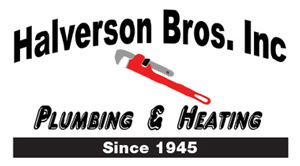
To combat increasing energy expenses and embrace sustainability, many homeowners are looking for ways to enjoy the same standards of comfort while reducing utility bills. Included in the Inflation Reduction Act, federal tax credits are available for high efficiency HVAC equipment. These credits offer a big chunk of the installation costs, provided that homeowners select eligible equipment and submit the right paperwork.
If you’re trying to avoid a long process, maybe we can help! Halverson Brothers Inc hopes this guide will provide all the information necessary to take full advantage of HVAC tax credits this year. Here’s how.
Understanding the HVAC Tax Credits
These valuable tax credits for energy-efficient home improvements are just one intended use of the recent Inflation Reduction Act. With the higher cost of energy making an impact, helping more homeowners upgrade their equipment is always beneficial. The main intention of these credits is to reduce the cost of installing high efficiency upgrades. Two of note are the Energy Efficiency Home Improvement Credit and the Residential Clean Energy Credit.
However, in order to be eligible for tax credits, you’ll need to fill out IRS Form 5695. Additionally, this form is submitted during the same tax year the upgrades were installed, not purchased.
Energy Efficiency Home Improvement Credit
Through 2032, the Energy Efficiency Home Improvement Credit provides up to $3,200 each year for installing higher efficiency home upgrades. This equals 30% of the total project’s cost. It's important to note in order to get back the maximum amount, you’ll have to make several investments. For example, you’ll get up to $2,000 for a new, high-efficiency heat pump. This can be combined with the remaining $1,200 in credits for other eligible upgrades made within the tax year.
While new heat pump systems are a popular option for the tax credit, high-efficiency furnaces, air conditioners, boilers, and other HVAC systems are still eligible for this tax credit. You should confirm the make and model’s energy efficiency rating is high enough for eligibility.
Residential Clean Energy Credit
The Residential Clean Energy Credit provides 30% savings on a wide range of residential clean energy equipment upgrades. Eligibility is only extended to homeowners looking for new clean energy solutions for their home. While the Home Improvement Credit focuses on utilities and HVAC systems, this credit is instead designed around renewable energy sources like solar and wind energy.
Some provisions of the tax credit include requiring the installation project to be finished between 2022 and 2032. But at the same time, homeowners can keep the excess credit to reduce future taxes. This is a great way to soften the entry into investing in clean energy.
What Else Is Eligible for These Tax Credits?
Because HVAC systems are one of the biggest portions of your monthly energy costs, these tax credits can guide you to the most energy-efficient options. But home energy efficiency can be improved in many other ways. Apart from the previously listed HVAC upgrades, {you could also choose|other eligible items include|you also have access to:
- Heat pump water heaters
- Modern electrical panel improvements
- Upgraded electrical wiring
- Insulation, air sealing and ventilation enhancements
- Energy-efficient cooking appliances like stoves, cooktops, and ovens
- Heat pump clothes dryers
- High-efficiency water boilers
Like the HVAC systems, you’ll need to verify that your chosen products meet the eligible energy efficiency ratings.
Maximizing Your 2024 HVAC Tax Credits: Top 3 Tips
While all the listed upgrades can improve your home’s energy efficiency, some planning ahead will ensure the best chance at more long-term benefits. Maximize your HVAC tax credits with these three tips:
- Perform an energy audit to pinpoint valuable enhancements. Rely on professional HVAC assessments for crucial advice.
- Improve your home's thermal efficiency with better windows and doors.
- Explore potential rebates from utility companies for clean energy upgrades. Renewable sources like solar, wind, and geothermal contribute to community power grid sustainability.
- Remember to consider financing plans offered by service providers.
Halverson Brothers Inc Can Help You Secure HVAC Credits for 2024
Partner with local HVAC professionals like Halverson Brothers Inc for eligible serves like energy assessments or new installation. Our seasoned installers will deliver everything you need for a more energy-efficient home.






